I Got a Full-Ride to Law School Using This Personal Statement

Law school admissions certainly are intimidating, especially when it comes to the rather daunting task of writing a personal statement with no real prompt. Generally, law schools will ask for no more than two pages of basically whatever you would like to talk about.
However, there are a few well-established principles for writing a successful personal statement. Here are 4 principles, along with my own personal statement, to help you hit a home run:
The personal statement should only drive your application forward. If it is holding it back in any way, it is not ready.

Your personal statement should explain your interest or purpose for studying the law.
This does not have to be the backbone of the entire piece, but it should be at least mentioned somewhere. It should also avoid legal jargon and should not be some sort of showcase for legal knowledge. It also should not be a regurgitation of your resume. The committee will already have your resume, so the personal statement serves as a supplement to it.
Spend the time making your personal statement better.
To get a competitive offer from whichever law school you may be applying to, it all starts with a good application package. The admissions committee is going to want to see a good LSAT score , a strong GPA, some recommendations, and a well-written personal statement. That much is clear. Your personal statement may never feel like it is just right, but it can only become better with consistent time and effort spent drafting it again and again.
Research examples of well-written personal statements.
To get some ideas about what a good personal statement could look like, I did a preliminary search to read a few successful ones. The University of Chicago had a few essays posted on their site from admitted students that gave me a good point of reference. Although there is tremendous flexibility in writing the personal statement, it should not be so wacky as to discourage the admissions committee in your abilities as a writer or in your seriousness about attending law school.
Take advantage of the resources around you to make your statement the best.
For my statement, I went through a couple of potential concepts and decided to do one on my life’s motto. And, no, it was not some cliché that I pretended was my motto; I picked words that I truly lived by and continue to live by to this day. I spent many hours writing and rewriting my personal statement. Thankfully, I had the invaluable help of my roommate, who is a strong writer himself, and he gave me useful feedback on many of my drafts (I promised him a nice dinner if I ended up getting admitted with a full-ride to somewhere). When I got close to a final draft, I took it to my school’s writer’s workshop to have someone I had never met before read it aloud. It allowed me to hear where someone might misunderstand something so that I could make changes accordingly for the final product.

Beginning in the spring, picking up in September, accelerating further in October, and finishing in November when I sent my applications out, the whole process produced something that I thought gave me a very strong shot at success. So here it is. Enjoy:
“Ball: outside!” declared the umpire.
“Come on now! Get ahead, stay ahead, kid!” demanded my coach.
I checked the sign: fastball. That pitch was just not there; I shook my head no. My catcher gave me the next sign: curveball. Yes, the get-me-over-curve, my signature pitch. I stepped back to begin my windup.
“Steeeeeriiike! One and one,” the umpire grunted.
“That’s the way, Duff! Just like that!” my coach exclaimed.
My catcher fired that ball back to me. I toed the rubber and focused on his signs: he flashed two fingers and motioned to the right—curveball, outside. I nodded affirmatively. He and I were on the same page. I began my windup again, picked up the leg, and spun my big overhand curve to the plate.
“Two! One and two.” The batter stood motionless as he watched my back door hook clip the outer edge of the strike zone.
“One more now, Duff! Come on, kid!”
The pitch count, or the current amount of balls and strikes in a given at bat, is perhaps the most impactful construct of baseball. After every pitch, the umpire declares it to be a ball or strike, subsequently adding it to the count. If the batter reaches four balls, he earns a walk, or a free pass to first base; if he gets three strikes, the batter is out. The batter’s goal is to reach a base before three strikes. The pitcher does everything that he can to stop that.
As I got the ball back, I knew I was in the driver’s seat. The batter was at a tremendous disadvantage and would have to react to my pitches on two strikes rather than just being able to lock in on one. I leaned in for the sign: one finger, right, up—fastball, high and outside. I liked it. Even though it was not my best pitch that day, I understood that I could still use it effectively to keep batters off balance since I was ahead. I stepped back into the windup and let the pitch fly.
The batter flailed at the pitch. “Three!” shouted the umpire, raising his fist in the air to call him out. He was sitting on the big, slow curveball and not the fastball, but he could not be selective because he was down in the count. On to the next one.
“Atta kid! That’s what happens when you get ahead!”
Get ahead, stay ahead.
While my organized baseball playing days may be over, that fundamental is still strong. A picture of all-star pitcher Max Scherzer hurling a baseball towards the plate sits above my desk with that same motto in bolded letters: Get Ahead, Stay Ahead .
What does getting ahead provide? For one, it gives the peace of mind that comes with flexibility; there’s room to react in case something goes off course. In baseball, it gives the pitcher more room to work within the count because he has more options when the batter must play defensively. In short, he can do what he wants. One of the key differences between baseball and life, however, is that baseball has a simple, predetermined goal: score more runs than the other team! Life, on the other hand, allows for enormous flexibility in choosing a goal. Rather than be content with the usual four-year bachelor’s track, I pushed forward as hard as I could to graduate in three years. Many people are surprised when I tell them about my efforts to graduate early; they often wonder why I chose to accelerate my education. I usually explain that it saved me a significant amount of money while expanding my room for error. Most importantly, I tell them, by efficiently reorganizing my schedule, getting ahead actually gave me time to think.
The most successful people throughout history have all had an overarching goal, no matter how grand; with the time from getting ahead, I chose mine. Andrew Carnegie sought to provide affordable steel, Henry Ford wanted to create a universal automobile, and Elon Musk aims to put a city on Mars. After seeing their success, I think about how I can do the same. Simply put, I want to be a leader in sustainable real estate. More specifically, I want to make green living universal. Whenever I get the same surprised looks from this claim as when I tell someone that I am graduating early, I clarify that there are already some pioneers designing revolutionary apartments with trees planted on all of their floors, working to clean the air in polluted cities. Stefano Boeri, for example, has designed a thirty-six-floor building covered with trees on terraces jutting out from its sides, dubbed the “Tower of Cedars.” I want to take this premise further: my mission is to expand clean living to all, not just the elite who can afford it. The law is one of the most important tools that I will need to achieve this. The complexities of environmental and real estate law will be major challenges. Regardless, to lead the industry, I must get ahead. When I start my business, I will reflect on my experience in running the Trial Team as its president, the perspective on efficient business systems that I gained with American Hotel Register, and the tips that the CEO of Regency Multifamily shared with me for optimally running a large real estate firm, among many other things. But I will always be looking forward. While history shows that there are answers in the past, only the future knows them. Thankfully, controlling the present by getting ahead can make the future that much more certain.
I stepped back into the windup, again. As I drove off the rubber towards the plate, I extended out as far as I could to get as much control and power as possible. The big hook landed firmly over the outer third of the plate, right into my catcher’s mitt with a solid phwump .
“Steeeeeriiike! Oh-and-one.”
“Atta kid!” My coach was elated to see my pitch command this inning.
Are you inspired to get ahead? Don’t you just feel a sudden urge to admit me into your program? Well thankfully, it made an impression on someone. I did my best to show my ambitions while showing a bit of my personality. The greatest risk that I took was that some of the baseball jargon may have been hard to understand for someone unfamiliar with the sport, but I made sure that it would not detract from the overall meaning of the piece. It served as a useful supplement to the rest of my application.
As of 2018, I am enrolled at Chicago-Kent College of Law with a full tuition scholarship. While it is no Ivy program, it is a respectable school with a strong regional reputation. The great thing about having the financial burden of law school off my shoulders is that I can now focus on getting the most out of my studies, rather than stress to figure out how I am going to pay off the debt that would have financed my education. And if it turns out that the program is not the best option for me, I can walk away with no financial strings attached.
The personal statement should only drive your application forward. If it is holding it back in any way, it is not ready. Keep it professional but do be creative and show the reader more of your personality than a resume alone would give. You are selling them your brand as a student, so do not let them gloss over your application without much of a thought.
Jack graduated from the University of Illinois at Urbana-Champaign in May 2018 with a degree in Economics and History, and he currently works in property management while attending Chicago-Kent College of Law on a part-time basis. He hopes to use his law degree to enhance his career in commercial real estate and eventually lead sustainable large-scale real estate developments nationwide.
Come and join in the conversation on our social channels.

Show Westlaw some love!
View this post on Instagram A post shared by Westlaw for Law Students (@trlawschool.us)
Statutes on Westlaw - Bonus Entries
Need some inspiration check out the statutes below., key numbers on westlaw - bonus entries, need some inspiration check out these key numbers by using the digest searches below., searching on westlaw - bonus entries, need some search inspiration for your entries check out the sample searches below.

Because neurodivergent people often need visual prompts or sensory tools, it is helpful to figure out what works best for you. Maybe you need a quiet fidget to use under your desk in class to help you focus. Maybe you need to incorporate the use of timers throughout your day. If you struggle with time blindness, you can use hourglasses to help you visualize time. Perhaps you struggle with extraneous sounds and need to use noise-cancelling headphones. More and more tools and gadgets are being made for neurodiverse individuals that can help you throughout law school.

Society can dictate when you are supposed to be most productive. See the traditional 9-5 work schedule. However, that model does not always work best for neurodiverse individuals. Some people are not morning people, and that is fine. Figure out when you have the most energy during your day to be your most productive self.

Find one system to use for organization and don’t change it. Trying too many organizational systems can become overwhelming. If your phone calendar works best, use that. If you are a list person, write all the lists. If you are a planner person, find the coolest one to use throughout the school year.

It would be nice to think that you can remember every task or deadline, but let’s be honest, that’s probably not true. Write down every deadline, every task, meeting, assignment, important date, etc. in the organizational system that you use.

Just like you can only put so much gasoline in a car, most neurodiverse individuals only have so much room in their focus tank. Figure out how long you can truly focus and apply yourself to a task before you need a break. That amount of time is typically shorter for neurodiverse individuals. If you can only truly focus for 20 minutes, study for 20 minutes, take a break, and then come back for another 20 minutes.

You may have started law school with your mind full of horror stories. Throw them out the window. Most of the people you attend law school with are genuinely kind and helpful people. Try to find a group or a couple of people that you can trust and lean on when necessary. Your law school friends can help you stay on task, body double, and even provide notes on the days you may be struggling. These friends can be one of your greatest assets throughout your law school journey.

Only discuss your neurodivergence with your professors to the extent that you are comfortable. If there are things you are concerned about related to your neurodivergence, it can be beneficial to make your professors aware at the beginning of the semester. Whether you are worried about cold calling or need a topic broken down, most professors love opportunities to discuss their area of law! They can’t know that you may need help if you don’t let them know. This is especially important if you aren’t successful in getting accommodations from your school’s Disability Services.

As a neurodivergent student, you may not fit the traditional mold of all the things a law student is “supposed to do” in order to be successful. You have been in school for years, and now is the time to trust yourself and not be afraid to be an “outside of the box” law student. There is no harm in trying new study methods, but never fear going back to your personal basics. If you need help figuring those out, see if your law school has a learning center or faculty member that can assist you.
Outlining with jury instructions.
- On your Westlaw Precision home screen, click on Secondary Sources and then Jury Instructions .
- On the Jury Instructions page, use the Jurisdiction filter to select your desired jurisdiction.
- Search for your cause of action. (Ex. elements of libel in Federal Jury Practice & Instructions )
- Open your relevant jury instruction and don't forget to check the related notes.
- To see more instructions, check out the table of contents to your left or click on View Full TOC.

Citation in a Click
- Highlight the text you want to copy. Try it out with Miranda v. Arizona
- Select "Copy with Reference" from the pop-up box.
- Paste into your word document...and you're done!
Black's Law Dictionary
Don't guess the meaning of a legal term. know it., by using black’s law dictionary, exclusively on westlaw , you’ll know the meanings of key terms that will help you understand your cases faster, be prepared for cold-calls and beef up your class notes. 1. access black's law dictionary on westlaw., 2. type your term into the dictionary term box. (ex. demurrer ) if your term contains multiple words, place the terms in quotes. (ex. "rule against perpetuities" ), 3. open up your desired term, copy it and paste it into your notes., looking for some inspiration here are a few legal terms to get you started contracts - collateral estoppel - consequential damages civil procedure - minimum contacts - in personam jurisdiction torts - negligence - invasion of privacy criminal law - mayhem - wobbler, where can i learn more about a firm so i can ask good questions in an interview, news is an excellent source for learning about a firm. you’ll see the clients and matters they represent along with the accolades they earned from their communities. 1. click on news under “specialty areas” on your westlaw edge home screen., 2. start by trying a plain language search for your firm. (ex. gibson dunn crutcher ), 3. to up your search game, consider running a terms & connectors search with an index field. (ex. gibson /2 dunn /s crutcher & in(law lawsuit legal) ), start writing your brief without starting from scratch, what is a brief, a brief is a summary of a case in your own words that includes the key facts, procedural history, issues addressed, along with the court's holdings. how can i find a case on westlaw, cases on westlaw contain a synopsis, a summary of the main facts, issues and holdings of a case, and headnotes, summaries of points of law organizes by topic. you can locate cases on westlaw in a variety of ways. find by citation: if you know your case's citation, just type one of the citations in the search box. (ex. 113 sct 2217 ), find by party name: if you know the names of your parties, just start typing them in the search box and select corresponding case from the drop-down menu. (ex. international shoe).

Note: If your case has common party names, you may need to enter more than one party.
Download your synopsis and headnotes: once you've pulled up your case, click on download under delivery options, select brief it under what to deliver and click on download..

The right search terms can make a difference. Here is an easy way to come up with smart search terms.

Rules, Codes & Restatements
Exporting tables of contents, exporting a table of contents is an easy way to get access to a list of rules, codes or restatements that you can reference on the fly and add to your outlines, as needed. locate your rules, codes or restatement: to export a toc (table of contents), you'll first want to locate your resource. restatement of torts restatement of contracts restatement of property federal rules of civil procedure ucc article 2 federal rules of evidence united states constitution, export your toc: click on download, select outline of current view under what to deliver and then click on download..

Strengthen Your Interview Discussions with News
- Search for a particular firm, attorney, or agency. (Ex. Kirkland and Ellis or Fourth Circuit )
- Or select a specific practice area (Ex. Mergers & Acquisitions )
American Law Reports
Your go-to secondary source, finding an a.l.r. (american law reports) article covering your topic is a great starting point for research. you'll get a quick summary of the legal issue you're researching and a table of cases, laws, and rules to see the law across all jurisdictions. you can also use annotations to find additional secondary sources, such as legal encyclopedias, treatises, and periodicals. no wonder they're nicknamed already done legal research see it in action: the legal discussion to compensate student athletes is heating up. check out this alr article to see how the legal picture for tomorrow’s student athletes comes together in one place., keycite graphical history, procedural history made easy, are you reading a case and not sure how you got there procedurally reversed, remanded or otherwise, we got you. just sign into westlaw and follow the steps below... 1. grab one of the citations you see in your case book and type it into the search box on westlaw . (ex. 480 u.s. 102), 2. click on your case in the drop-down menu., 3. click on the history tab to see your procedural history., keycite graphical history works best when you have a federal case and a complex issue. check out some additional examples from your classes below. contracts - koken v. black & veatch const., inc. - lamps plus, inc. v. varela civil procedure - national equipment rental v. szukhent - helicopteros nacionales de colombia, s.a. v. hall torts - palsgraf v. long island r. co. - kentucky fried chicken of cal., inc. v. superior court, law school resource center, flowcharts, overviews & more..

Scheduled Maintenance
Step 1 - create a new class, step 3 - invite your students, step 2 - assign lessons.
About this event

Love Your Lawyer Day

All the rules you need for class in one place.
Understand the procedural history of your case..

Don't guess the meaning of a term. Know it.

Copy the Code Below
You'll use this code to make a copy of the sample course.
Click on Copy Another Class
Go to the Knowledge Center and click on the Copy Another Class button.
Enter Your Copy Code
Enter your copy code in the Enter Class Copy Code box and click the Validate button.
4. Set Your Options
Change your course title, set your course dates and set your copy option to Assignments Only.
5. Click Copy Course
Click on Copy Course and you're all set to share your course with students.
1. Copy the Code Below
2. click on copy another class, 3. enter your copy code, set your options, click copy course, determining whether a federal court has subject matter jurisdiction over a non-class action case..
If the case arises out of the U.S. Constitution, U.S. laws, rules or regulations, or a treaty signed by the U.S., and the federal courts have exclusive jurisdiction, then the case must be litigated in federal court.
If the case does not arise out of the U.S. Constitution, U.S. laws, rules or regulations, or a treaty signed by the U.S., and there is not complete diversity between the plaintiffs and defendants (a.k.a they are both from different states or one is a citizen of a foreign country), then the case must be litigated in state court.
Restatement of Contracts 2d
Counter-offers.
(1) A counter-offer is an offer made by an offeree to his offeror relating to the same matter as the original offer and proposing a substituted bargain differing from that proposed by the original offer.
(2) An offeree’s power of acceptance is terminated by his making of a counter-offer, unless the offeror has manifested a contrary intention or unless the counter-offer manifests a contrary intention of the offeree.
Negligence Defined
Restatement (second) of torts 282.
In the Restatement of this Subject, negligence is conduct which falls below the standard established by law for the protection of others against unreasonable risk of harm. It does not include conduct recklessly disregardful of an interest of others.
Black’s Law Dictionary (10th ed.2014)
Demurrer: A means of objecting to the sufficiency in law of a pleading by admitting the actual allegations made by disputing that they frame an adequate claim. Demurrer is commonly known as a motion to dismiss.
(2) An offeree’s power of acceptance is terminated by his making a counter-off, unless the offeror has manifested a contrary intention or unless the counter-offer manifests a contrary intention of the offeree.
testing footnote
What is common law and is it written by the courts of law?
[ninja_form id=2]

School: West Academic Test Account Only
This email confirms approval of your order of Law School registration keys required on July 02, 2019. View your order in Password Access Central as needed. If requested, your keys are listed below. Keys are registered at lawschool.westlaw.com/register . Users will need to create their individual OnePass credentials (Username and Password) as well as complete a Law School Profile.
Law School Registration Key(s) to be assigned.
Registration Steps are as follows
1. Visit lawschool.westlaw.com/register
2. Create your OnePass credentials The email address you use for OnePass will be the same one used for TWEN communications.
3. Complete a Law School Profile
Please contact Technical Support at 800-850-9378 (WEST) or email [email protected] with questions about registration. For questions about PAC, please contact your Academic Account Manager.
Westlaw Academic Team
Negligence defined
Restatement (second) of torts § 282.

Sign up to our Newsletter
How to write a law school personal statement + examples.

Reviewed by:
David Merson
Former Head of Pre-Law Office, Northeastern University, & Admissions Officer, Brown University
Reviewed: 3/18/24
Law school personal statements help show admissions committees why you’re an excellent candidate. Read on to learn how to write a personal statement for law school!
Writing a law school personal statement requires time, effort, and a lot of revision. Law school statement prompts and purposes can vary slightly depending on the school.
Their purpose could be to show your personality, describe your motivation for attending law school, explain why you want to go to a particular law school, or a mix of all three and more. This guide will help you perfect your writing with tips and examples.
The Best Law School Personal Statement Format
Unfortunately, there’s no universal format for a law school personal statement. Every law school has a preference (or lack thereof) on how your personal statement should be structured. We recommend always checking for personal statement directions for every school you want to apply to.
However, many law schools ask for similar elements when it comes to personal statement formats. These are some standard formatting elements to keep in mind if your school doesn’t provide specific instructions:
- Typically two pages or less in length
- Double-spaced
- Use a basic, readable font style and size (11-point is the smallest you should do, although some schools may request 12-point)
- Margins shouldn’t be less than 1 inch unless otherwise specified
- Left-aligned
- Indent new paragraphs
- Don’t return twice to begin a new paragraph
- Law schools typically ask for a header, typically including your full name, page number, LSAC number, and the words “Personal Statement” (although there can be variations to this)
How you format your header may be up to you; sometimes, law schools won't specify whether the header should be one line across the top or three lines.

This is how your header may look if you decide to keep it as one line. If you want a three-line header, it should look like this on the top-right of the page:

Remember, the best law school personal statement format is the one in the application instructions. Ensure you follow all formatting requirements!
How to Title a Personal Statement (Law)
You may be tempted to give your law school statement a punchy title, just like you would for an academic essay. However, the general rule is that you shouldn’t give your law school personal statement a title.
The University of Washington states, “DON’T use quotes or give a title to your statement.” Many other schools echo this advice. The bottom line is that although you're writing your story, your law school statement doesn't require a title. Don't add one unless the school requests it.
How to Start a Personal Statement for Law School
Acing the beginning of your personal statement is essential for your narrative’s success. The introduction is your chance to captivate the admissions committee and immerse them in your story. As such, you want your writing to be interesting enough to grab their attention without purposefully going for shock value.
So, how do you write a personal statement introduction that will garner the attention it deserves? The simplest way to get the reader involved in your story is to start with a relevant anecdote that ties in with your narrative.
Consider the opening paragraph from Harvard Law graduate Cameron Clark’s law school personal statement :
“At the intersection of 21st and Speedway, I lay on the open road. My leg grazed the shoulder of a young woman lying on the ground next to me. Next to her, a man on his stomach slowed his breathing to appear as still as possible. A wide circle of onlookers formed around the dozens of us on the street. We were silent and motionless, but the black-and-white signs affirmed our existence through their decree: BLACK LIVES MATTER.”
The beginning lines of this personal statement immediately draw the reader in. Why was the writer lying on the road? Why were other people there with him, and why was a man trying to slow his breathing? We're automatically inspired to keep reading to find out more information.
That desire to keep reading is the hallmark of a masterful personal statement introduction. However, you don’t want to leave your reader hanging for too long. By the end of this introduction, we’re left with a partial understanding of what’s happening.
There are other ways to start a personal statement that doesn't drop the reader in the middle of the action. Some writers may begin their law personal statement in other ways:
- Referencing a distant memory, thought, feeling, or perspective
- Setting the scene for the opening anecdote before jumping in
- Providing more context on the time, place, or background
Many openings can blend some of these with detailed, vivid imagery. Here's a law school personal statement opening that worked at the UChicago Law :
“I fell in love for the first time when I was four. That was the year my mother signed me up for piano lessons. I can still remember touching those bright, ivory keys with reverence, feeling happy and excited that soon I would be playing those tinkling, familiar melodies (which my mother played every day on our boombox) myself.”
This opening references a distant memory and feeling, mixed with vivid imagery that paints a picture in the reader's head. Keep in mind that different openers can work better than others, depending on the law school prompt.
To recap, consider these elements as you write your law school personal statement’s introduction:
- Aim for an attention-grabbing hook
- Don’t purposefully aim for shock value: it can sometimes seem unauthentic
- Use adjectives and imagery to paint a scene for your reader
- Identify which opening method works best for the law school prompt and your story
- Don’t leave the reader hanging for too long to find out what your narrative is about
- Be concise
Writing a law school personal statement introduction can be difficult, but these examples and tips can help you get the attention your writing deserves.
How to Write a Law School Personal Statement
Now that you’re equipped with great advice and tips to start your law school statement, it’s time to tackle the body of your essay. These tips will show you how to write a personal statement for law school to captivate the admissions committee.

Understand the Prompt
While many law schools have similar personal statement prompts, you should carefully examine what's being asked of you before diving in. Consider these top law school personal statement prompts to see what we mean:
- Yale Law School : “The personal statement should help us learn about the personal, professional, and/or academic qualities an applicant would bring to the Law School community. Applicants often submit the personal statement they have prepared for other law school applications.”
- University of Chicago Law : “Our application does not provide a specific topic or question for the personal statement because you are the best judge of what you should write. Write about something personal, relevant, and completely individual to you.”
- NYU Law : “Because people and their interests vary, we leave the content and length of your statement to your discretion. You may wish to complete or clarify your responses to items on the application form, bring to our attention additional information you feel should be considered, describe important or unusual aspects of yourself not otherwise apparent in your application, or tell us what led you to apply to NYU School of Law.”
Like all law personal statements, these three prompts are pretty open-ended. However, your Yale personal statement should focus on how you’d contribute to a law school community through professional and academic experience and qualities.
For UChicago Law, you don’t even need to write about a law-related topic if you don’t want to. However, when it comes to a school like NYU Law , you probably want to mix your qualities, experiences, and what led you to apply.
Differing prompts are the reason you’ll need to create multiple copies of your personal statement!
Follow Formatting Directions
Pay extra attention to each school's formatting directions. While we've discussed basic guidelines for law school personal statement formats, it's essential to check if there is anything different you need to do.
While working on your rough drafts, copy and paste the prompt and directions at the top of the page so you don't forget.
Brainstorm Narratives/Anecdotes Based on the Prompt
You may have more wiggle room with some prompts than others regarding content. However, asking yourself these questions can generally help you direct your personal statement for any law school:
- What major personal challenges or recent hardships have you faced?
- What was one transformative event that impacted your life’s course or perspective?
- What are your hobbies or special interests?
- What achievements are you most proud of that aren’t stated in your application?
- What experience or event changed your values or way of thinking?
- What’s something you’re passionate about that you got involved in? What was the result of your passion?
- How did your distinct upbringing, background, or culture put you on the path to law school?
- What personal or professional experiences show who you are?
Keep in mind that this isn't an exhaustive list. Consider your personal and professional experiences that have brought you to this point, and determine which answers would make the most compelling story.
Pettit College of Law recommends you "go through your transcripts, application, and resume. Are there any gaps or missing details that your personal statement could cover?” If you've listed something on your resume that isn't further discussed, it could make a potential personal statement topic.
Do More Than Recount: Reflect
Recounting an event in a summarized way is only one piece of your law school personal statement. Even if you’re telling an outlandish or objectively interesting story, stopping there doesn’t show admissions committees what they need to know to judge your candidacy.
The University of Washington suggests that “describing the event should only be about 1/3 of your essay. The rest should be a reflection on how it changed you and how it shaped the person you are today.” Don’t get stuck in the tangible details of your anecdote; show what the experience meant to you.
Beth O'Neil , Director of Admissions and Financial Aid at UC Berkeley School of Law , said, "Applicants also tend to state and not evaluate. They give a recitation of their experience but no evaluation of what effect that particular experience had on them, no assessment of what certain experiences or honors meant."
Consider What Qualities You Want to Show
No matter what direction you want to take your law school personal statement, you should consider which qualities your narrative puts on display. Weaving your good character into your essay can be difficult. Outwardly claiming, "I'm a great leader!" doesn't add much value.
However, telling a story about a time you rose to the occasion to lead a group successfully toward a common goal shows strong leadership. "Show, don't tell" may be an overused statement, but it's a popular sentiment for a reason.
Of course, leadership ability isn't the only quality admissions committees seek. Consider the qualities you possess and those you'd expect to find in a great lawyer and check to see the overlap. Some qualities you could show include:
- Intelligence
- Persuasiveness
- Compassion
- Professionalism
Evaluate the anecdotes you chose after your brainstorming session and see if any of these qualities or others align with your narrative.
Keep Your Writing Concise
Learning how to write a personal statement for law school means understanding how to write for concision. Most prompts won't have a word limit but ask you to cap your story at two pages, double-spaced. Unfortunately, that's not a lot of space to work with.
Although your writing should be compelling and vibrant, do your best to avoid flowery language and long, complicated sentences where they’re not needed. Writing for concision means eliminating unnecessary words, cutting down sentences, and getting the point quickly.
Georgetown University’s take on law school personal statements is to “Keep it simple and brief. Big words do not denote big minds, just big egos.” A straightforward narrative means your reader is much less likely to be confused or get lost in your story (in the wrong way).
Decide the Depth and Scope of Your Statement
Since you only have two (or even three) pages to get your point across, you must consider the depth and scope of your narrative. While you don’t want to provide too little information, remember that you don’t have the room to summarize your entire life story (and you don’t have to do that anyway).
UChicago Law’s advice is to “Use your discretion - we know you have to make a choice and have limited space. Attempting to cover too much material can result in an unfocused and scattered personal statement.” Keep the depth and scope of your narrative manageable.
Ensure It’s Personal Enough
UChicago Law states, "If someone else could write your personal statement, it probably is not personal enough." This doesn't mean that you must pick the most grandiose, shocking narrative to make an impact or that you can't write about something many others have probably experienced.
Getting personal means only you can write that statement; other people may be able to relate to an experience, but your reflection, thoughts, feelings, and reactions are your own. UChicago Law sees applicants fall into this pitfall by writing about a social issue or area of law, so tread these topics carefully.
Mix the Past and Present, Present and Future, Or All Three
Harvard Law School’s Associate Director Nefyn Meissner said your personal statement should “tell us something about who you are, where you’ve been, and where you want to go.”
Echoing this, Jon Perdue , Yale Law School's Director of Recruiting and Diversity Initiatives, states that the three most common approaches to the Yale Law School personal statement are focusing on:
- The past: discussing your identity and background
- The present: focusing on your current work, activities, and interests
- The future: the type of law you want to pursue and your ideal career path
Perdue said that truly stellar personal statements have a sense of “movement” and touch on all or two of these topics. What does this mean for you? While writing your law school personal statement, don’t be afraid to touch on your past, present, and future. However, remember not to take on too much content!
Keep the Focus On You
This is a common pitfall that students fall into while writing a law school personal statement . UChicago Law cites that this is a common mistake applicants make when they write at length about:
- A family member who inspired them or their family history
- Stories about others
- Social or legal issues
Even if someone like your grandmother had a profound impact on your decision to pursue law, remember that you’re the star of the show. Meissner said , “Should you talk about your grandmother? Only if doing so helps make the case for us to admit you. Otherwise, we might end up wanting to admit your grandmother.” Don’t let historical figures, your family, or anyone else steal your spotlight.
Decide If You Need to Answer: Why Law?
Writing about why you want to attend law school in general or a school in particular depends on the prompt. Some schools welcome the insight, while others (like Harvard Law) don't. Meissner said, “Should you mention you want to come to HLS? We already assume that if you’re applying.”
However, Perdue said your law school personal statement for Yale should answer three questions:
- Why law school?
Some schools may invite you to discuss your motivation to apply to law school or what particular elements of the school inspired you to apply.
Don’t List Qualifications or Rehash Your Resume
Your personal statement should flow like a story, with an identifiable beginning, middle, and end. Simply firing off your honors and awards, or summarizing the experiences on your resume, doesn’t tell the admissions committee anything new about you.
Your personal statement is your opportunity to show how your unique experiences shaped you, your qualities, and the person you are behind your LSAT scores and GPA. Think about how you can show who you are at your core.
Avoid Legalese, Jargon, And Sophisticated Terms
The best law school personal statements are written in straightforward English and don't use overly academic, technical, or literary words. UChicago Law recommends avoiding legalese or
Latin terms since the "risk you are incorrectly using them is just too high."
Weaving together intricate sentence structures with words you pulled out of a thesaurus won’t make your personal statement a one-way ticket to acceptance. Be clear, straightforward, and to the point.
Don’t Put Famous Quotes In Your Writing
Beginning your law school personal statement with a quote is not only cliche but takes the focus off of you. It also eats up precious space you could fill with your voice.
Revise, Revise, Revise
Even the most talented writers never submit a perfect first draft. You'll need to do a lot of revisions before your personal statement is ready for submission. This is especially true because you'll write different versions for different law schools; these iterations must be edited to perfection.
Ensure you have enough time to make all the edits and improvements you need before you plan to submit your application. Although most law schools have rolling admissions, submitting a perfected application as soon as possible is always in your best interest.
Have an Admission Consultant Review Your Hard Work
Reviewing so many personal statements by yourself is a lot of work, and most writing can always benefit from a fresh perspective. Consider seeking a law school admissions consultant’s help to edit your personal statements to perfection and maximize your chances of acceptance at your dream school!

How to End Your Personal Statement for Law School
Law school personal statement conclusions are just as open-ended as your introductions. There are a few options for ending a personal statement depending on the prompt you’re writing for:
Some of these methods can overlap with each other. However, there are two more things you should always consider when you're ready to wrap up your story: the tone you're leaving on and how you can make your writing fit with your narrative's common thread.
You should never want to leave your reader on a low note, even if you wrote about something that isn’t necessarily happy. You should strive to end your personal statement with a tone that’s hopeful, happy, confident, or some other positive feeling.
Your last sentences should also give the impression of finality; your reader should understand that you’re wrapping up and not be left wondering where the rest of your statement is.
So, what's the common thread? This just means that your narrative sticks to the overarching theme or event you portrayed at the beginning of your writing. Bringing your writing full circle makes a more satisfying conclusion.
Personal Statement for Law School Conclusion Examples
Evaluating law school personal statement conclusions can help you see what direction authors decided to take with their writing. Let’s circle back to the sample personal statement openings for law school and examine their respective conclusions. The first example explains the applicant’s motivation to attend Harvard Law.
Sample Personal Statement for Law School Conclusion #1
“…Attorneys and legal scholars have paved the way for some of the greatest civil rights victories for women, people of color, LGBTQ individuals, and (people living with disabilities). At Harvard Law School, I will prepare to join their ranks by studying with the nation's leading legal scholars.
For the past months, I have followed Harvard Law School student responses to the events in Ferguson and New York City. I am eager to join a law school community that shares my passion for using the law to achieve real progress for victims of discrimination. With an extensive history of advocacy for society's most marginalized groups, I believe Harvard Law School will thoroughly train me to support and empower communities in need.
Our act of civil disobedience that December day ended when the Tower’s bells rang out in two bars, hearkening half-past noon. As we stood up and gathered our belongings, we broke our silence to remind everyone of a most basic truth: Black lives matter.”
What Makes This Conclusion Effective
Although Harvard Law School states there's no need to explain why you want to apply, this law school statement is from an HLS graduate, and we can assume this was written before the advice changed.
In his conclusion, he relates and aligns his values with Harvard Law School and how joining the community will help him fulfill his mission to empower communities in need. The last paragraph circles back to the anecdote described in his introduction, neatly wrapping up the event and signaling a natural end to his story.
This author used these strategies: the motivation to attend a specific law school, stating his mission, and subtly reiterating what his acceptance would bring to the school. The next example conclusion worked at UChicago Law:
Sample Personal Statement for Law School Conclusion #2
“Songs can be rewritten and reinterpreted as situation permits, but missteps are obvious because the fundamental laws of music and harmony do not change.
Although my formal music education ended when I entered college, the lessons I have learned over the years have remained close and relevant to my life. I have acquired a lifestyle of discipline and internalized the drive for self-improvement. I have gained an appreciation for the complexities and the subtleties of interpretation.
I understand the importance of having both a sound foundation and a dedication to constant study. I understand that to possess a passion and personal interest in something, to think for myself is just as important.”
What Made This Conclusion Effective
This law school personal statement was successful at UChicago Law. Although the writing has seemingly nothing to do with law or the author's capability to become a great lawyer, the author has effectively used the "show, don't tell" advice.
The last paragraph implements the focus on qualities or skills strategy. Although related to music, the qualities they describe that a formal music education taught her mesh with the qualities of a successful lawyer:
- A drive for self-improvement
- The ability to interpret information
- The ability to learn consistently
- The ability to think for herself
Overall, this essay does an excellent job of uncovering her personality and relating to the opening paragraph, where she describes how she fell in love with music.
2 Law School Personal Statement Examples From Admitted Students
These are two law school personal statement examples that worked. We'll review the excerpts below and describe what made them effective and if there's room for improvement.
Law School Personal Statement Example #1
This is an excerpt of a law personal statement that worked at UChicago Law :
“The turning point of my college football career came early in my third year. At the end of the second practice of the season, in ninety-five-degree heat, our head coach decided to condition the entire team. Sharp, excruciating pain shot down my legs as he summoned us repeatedly to the line to run wind sprints.
I collapsed as I turned the corner on the final sprint. Muscle spasms spread throughout my body, and I briefly passed out. Severely dehydrated, I was rushed to the hospital and quickly given more than three liters of fluids intravenously. As I rested in a hospital recovery room, I realized my collapse on the field symbolized broader frustrations I felt playing college football.
I was mentally and physically defeated. In South Dakota, I was a dominant football player in high school, but at the Division I level, my talent was less conspicuous. In my first three years, I was convinced that obsessively training my body to run faster and be stronger would earn me a starting position. The conditioning drill that afternoon revealed the futility of my approach. I had thrust my energies into becoming a player I could never be. As a result, I lost confidence in my identity.
I considered other aspects of my life where my intellect, work ethic, and determination had produced positive results. I chose to study economics and English because processing abstract concepts and ideas in diverse disciplines were intuitively rewarding…Gathering data, reviewing previous literature, and ultimately offering my own contribution to economic knowledge was exhilarating. Indeed, undergraduate research affirmed my desire to attend law school, where I could more thoroughly satisfy my intellectual curiosity…My efforts generated high marks and praise from professors, but this success made my disappointment with football more pronounced.
The challenge of collegiate athletics felt insurmountable. However, I reminded myself that at the Division I level, I was able to compete with and against some of the best players in the country…After the hospital visit, my football position coach—sensing my mounting frustrations—offered some advice. Instead of devoting my energies almost exclusively to physical preparation, he said, I should approach college football with the same mental focus I brought to my academic studies. I began to devour scouting reports and to analyze the complex reasoning behind defensive philosophies and schemes. I studied film and discovered ways to anticipate plays from the offense and become a more effective player. Armed with renewed confidence, I finally earned a starting position in the beginning of my fourth year…
I had received the highest grade on the team. After three years of A’s in the classroom, I finally earned my first ‘A’ in football. I used mental preparation to maintain my competitive edge for the rest of the season. Through a combination of film study and will power, I led my team and conference in tackles…The most rewarding part of the season, though, was what I learned about myself in the process. When I finally stopped struggling to become the player I thought I needed to be, I developed self-awareness and confidence in the person I was.
The image of me writhing in pain on the practice field sometimes slips back into my thoughts as I decide where to apply to law school. College football taught me to recognize my weaknesses and look for ways to overcome them. I will enter law school a much stronger person and student because of my experiences on the football field and in the classroom. My decision where to attend law school mirrors my decision where to play college football. I want to study law at the University of Chicago Law School because it provides the best combination of professors, students, and resources in the country. In Division I college football, I succeeded when I took advantage of my opportunities. I hope the University of Chicago will give me an opportunity to succeed again.”
Why This Personal Statement Example Worked
The beginning of this personal statement includes vivid imagery and sets up a relevant anecdote for the reader: the writer’s injury while playing football. At the end of the introduction, he sets up a fantastic transition about his broader frustrations, compelling us to keep reading.
The essay's body shows the writer's vulnerability, making it even more personal; it can be challenging to talk about feelings, like losing your confidence, but it can help us relate to him.
The author sets up a transition to writing more about his academic ability, his eventual leadership role on the team, and developing the necessary qualities of a well-rounded lawyer: self-awareness and confidence.
Finally, the author rounds out his statement by circling back to his opening anecdote and showing the progress he’s made from there. He also describes why UChicago Law is the right school for him. To summarize, the author expertly handled:
- Opening with a descriptive anecdote that doesn’t leave the reader hanging for too long
- Being vulnerable in such a way that no one else could have written this statement
- Doing more than recounting an event but reflecting on it
- Although he introduced his coach's advice, he kept himself the focal point of the story
- He picked a focused event; the writer didn’t try to tackle too much content
- His conclusion references his introduction, signalling the natural end of the story
- The ending also reaffirms his passion for pursuing law, particularly at UChicago Law
Law School Personal Statement Example #2
This law school personal statement excerpt led to acceptance at Boston University Law.
“She sat opposite me at my desk to fill out a few forms. Fumbling her hands and laughing uncomfortably, it was obvious that she was nervous. Sandra was eighteen, and her knowledge of English was limited to “yes” and “hello.” While translating the initial meeting between Sandra and her attorney, I learned of her reasons for leaving El Salvador. She had been in an abusive relationship, and though she wasn’t ready to go into detail just yet, it was clear from the conversation that her boyfriend had terrorized her and that the El Salvadoran police were of no help…Eventually, Sandra was given a credible fear interview. The interviewer believed that she had a real fear of returning to El Salvador, and Sandra was released from detention with an Immigration Court hearing notice in her hand. She had just retained our office to present her asylum case to the Immigration Judge.
I tried to imagine myself in Sandra’s shoes. She hadn’t finished high school, was in a completely new environment, and had almost no understanding of how things worked in the US. Even the harsh New England winter must have seemed unnatural to her. Having lived abroad for a couple of years, I could relate on some level; however, the circumstances of my stay overseas were completely different. I went to Spain after graduating from college to work in an elementary school, improve my Spanish skills, and see a bit of the world…I had to ask hundreds of questions and usually make a few attempts before actually accomplishing my goal. Frustrating though it was, I didn’t have so much riding on each of these endeavors. If I didn’t have all the necessary paperwork to open a bank account one day, I could just try again the next day. Sandra won’t be afforded the same flexibility in her immigration process, where so much depends on the ability to abide by inflexible deadlines and procedures. Without someone to guide her through the process, ensuring that all requirements are met, and presenting her case as persuasively as possible, Sandra will have little chance of achieving legal status in the United States…
Before starting at my current position at Joyce & Associates, an immigration law firm in Boston, I had long considered a career in law. Growing up, I was engaged by family and school debates about public policy and government. In college, I found my constitutional law courses challenging and exciting. Nonetheless, it wasn’t until I began working with clients like Sandra that I became convinced that a career in law is the right choice for me. Playing my part as a legal assistant in various immigration cases, I have been able to witness how a career in immigration advocacy is both intellectually stimulating and personally fulfilling. I have seen the importance of well-articulated arguments and even creativity in arguing a client’s eligibility for an immigration benefit. I have learned that I excel in critical thinking and in examining detail, as I continually consider the consistency and possible implications of any documents that clients provide in support of their application. But most importantly, I have realized how deserving many of these immigrants are. Many of the clients I work with are among the most hardworking and patriotic people I have encountered…
I am equally confident that I would thrive as a student at Boston University, where I would be sure to take full advantage of the many opportunities available. The school’s Asylum and Human Rights Clinic and Immigration Detention Clinic would offer me invaluable experiences in various immigration settings…Given my experiences in an immigration firm, I know that I would have much to offer while participating in these programs, but even more to learn. And while I find BU’s immigration programs to be especially appealing, I am equally drawn to the Boston University experience as a whole…I hope to have the opportunity to face those challenges and to contribute my own experiences and drive to the Boston University community.”
This statement makes excellent use of opening with an experience that sets the writer's motivation to attend law school in motion. We're introduced to another person in the story in the introduction before the author swivels and transitions to how she'd imagine herself in Sandra's shoes.
This transition shows empathy, and although the author could relate to her client's struggles on a more superficial level, she understood the gravity of her situation and the hardships that awaited her.
The author backpedals to show how she's cultivated an interest in law in college and explored this interest to know it's the right choice for her. The conclusion does an excellent job of referencing exactly how BU Law will help her achieve her mission. To recap, this personal statement was effective because:
- She started her personal statement with a story
- Although the writer focuses on an event with another person, she moves the focus back to her
- The author’s statement shows qualities like empathy, compassion, and critical thinking without explicitly stating it
- She connects her experiences to her motivation to attend law school
- This statement has movement: it references the author’s past, present, and future
- She ends her statement by explaining in detail why BU Law is the right school for her
Although this personal statement worked, circling back to the opening anecdote in the conclusion, even with a brief sentence, would have made the conclusion more impactful and fortified the common thread of her narrative.
How to Write Personal Statement For Law School: FAQs
Do you still have questions about how to write a personal statement for law school? Read on to learn more.
1. What Makes a Good Personal Statement for Law School?
Generally, an excellent personal statement tells a relevant story, showcases your best qualities, is personal, and creatively answers the prompt. Depending on the prompt, a good personal statement may describe your motivation to attend law school or why a school, in particular, is perfect for you.
2. Should I Write a Separate Personal Statement for Each School?
Depending on the prompts, you may be able to submit the same or similar personal statements to different schools. However, you’ll likely need more than one version of your statement to apply to different schools. Generally, students will write a few versions of their statements to meet personal statement instructions.
3. How Long Should My Personal Statement Be?
Personal statement length requirements vary by school, but you can generally expect to write approximately two pages, double-spaced.
4. What Should You Not Put In a Law School Personal Statement?
Your personal statement shouldn’t include famous quotes, overly sophisticated language, statements that may offend others, and unhelpful or inappropriate information about yourself.
5. What Do I Write My Law School Personal Statement About?
The answer depends on the prompt you need to answer. Consider your experiences and decide which are impactful, uncover your personality, show your motivation to attend law school, or show your impressive character traits.
6. Does the Personal Statement Really Matter for Law School?
Top LSAT scores and high GPAs may not be enough, especially at the T-14 law schools. Due to the high level of competition, you should take advantage of your personal statement to show why you’re an excellent candidate. So yes, they do matter.
Writing A Law School Personal Statement is Easy With Juris
Writing a personal statement can be tricky, but it doesn’t have to be. Juris Education is committed to helping you learn how to write a law school personal statement with ease. We help future law school students develop their narratives, evaluate writing to ensure it’s in line with what law schools expect, and edit statements to perfection.
A stellar personal statement helps you stand out and can help you take that last step to attending the law school of your dreams.

Schedule A Free Consultation
You may also like.

LSAT Logical Reasoning: Sample Questions + Complete Guide

Transferring Law Schools: All You Need to Know

How to Write a Compelling Personal Statement for University of Chicago Law School
Learn how to craft a winning personal statement for University of Chicago Law School with our comprehensive guide.
Posted May 12, 2023
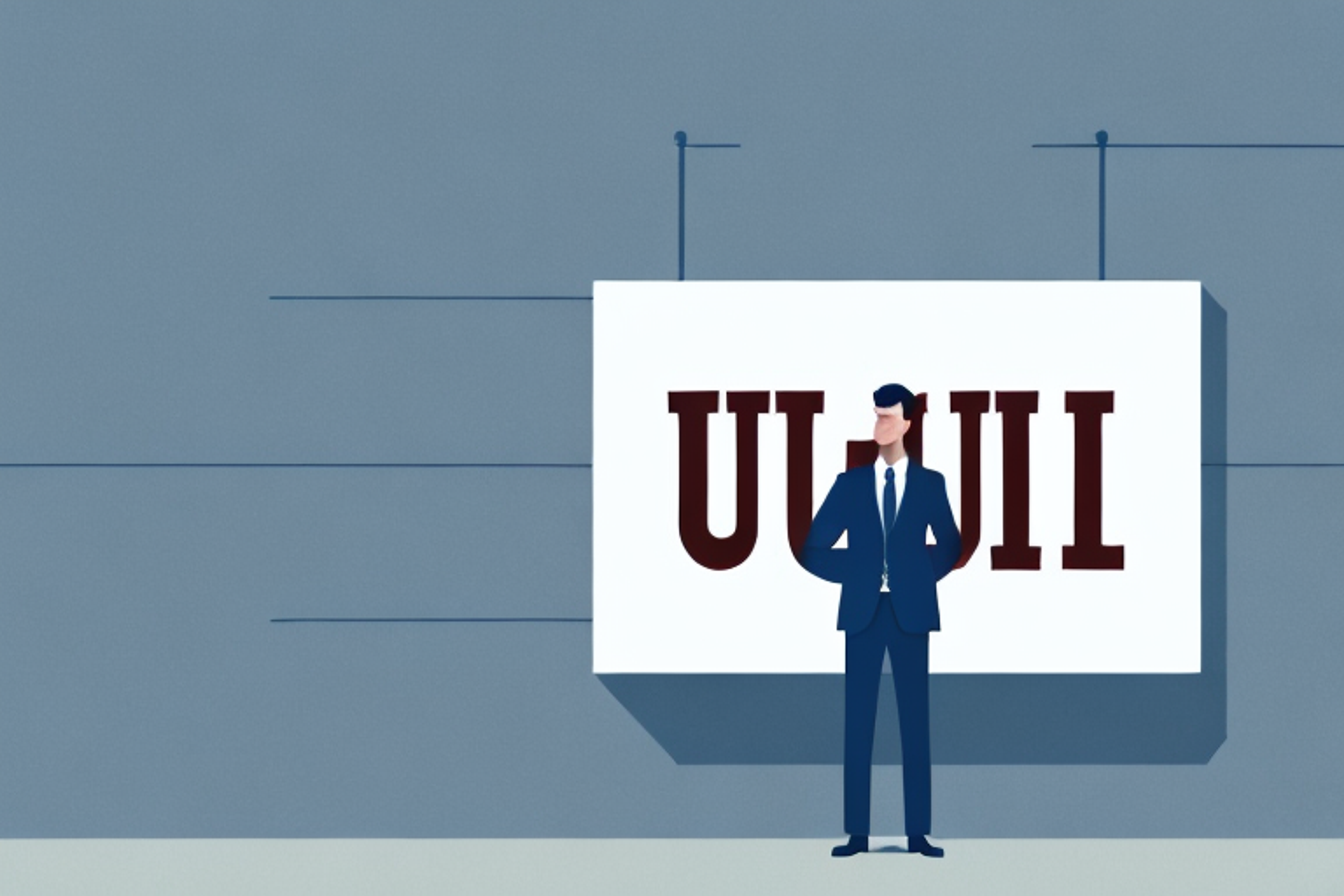
Featuring Machmud M.
Deciding Which Law School to Attend
Tuesday, april 2.
7:00 PM UTC · 60 minutes
If you're applying to the University of Chicago Law School, you know that competition for admission is fierce. The admissions committee looks for candidates who are not only academically strong but who also have unique experiences, achievements, and personal qualities that set them apart from other applicants. That's where your personal statement comes in. This crucial document is your chance to showcase your strengths, explain any weaknesses, and demonstrate why you're an excellent fit for UChicago's law school program. In this article, we'll walk you through the process of crafting a compelling personal statement that will impress the admissions committee and increase your chances of being admitted to UChicago's law school program.
Understanding the Importance of a Personal Statement in Law School Admissions
Before we dive into the specifics of how to write a compelling personal statement for UChicago Law School, let's talk about why this document is so important. Your personal statement is essentially your sales pitch to the admissions committee. It's your chance to explain why you're an exceptional candidate who would be an asset to UChicago's law school program. Unlike your transcripts and test scores, which only tell part of your story, your personal statement allows you to provide the admissions committee with a more complete picture of who you are, what you've accomplished, and what motivates you.
One of the key reasons why a personal statement is so important in law school admissions is that it can help you stand out from other applicants. Admissions committees receive thousands of applications each year, and many of these applicants have similar academic backgrounds and test scores. Your personal statement is your opportunity to differentiate yourself from the crowd and showcase your unique qualities and experiences.
Another reason why a personal statement is crucial is that it can demonstrate your writing skills and ability to communicate effectively. As a law student and future lawyer, strong writing skills are essential. Your personal statement is a chance to showcase your ability to write persuasively, coherently, and with clarity. This can give the admissions committee confidence in your ability to succeed in law school and in your future legal career.
Researching the University of Chicago Law School and Its Admissions Process
Before you start writing your personal statement, it's crucial to do your research on UChicago's law school program and its admissions process. Look at the school's website, read their mission statement, and study the curriculum to gain a deeper understanding of what UChicago is looking for in its students.
You should also take the time to familiarize yourself with the admissions process, including deadlines, required documents, and any special requirements or guidelines for personal statements. This will help you tailor your statement to UChicago's specific requirements and increase your chances of impressing the admissions committee.
Another important aspect to consider when researching UChicago's law school program is the faculty and their areas of expertise. Take a look at the faculty directory and read up on their research interests and publications. This can give you an idea of the types of courses and opportunities that may be available to you as a student.
Additionally, it's a good idea to reach out to current students or alumni of UChicago's law school to get their perspective on the program. You can connect with them through social media or professional networking sites, or attend law school fairs and events where UChicago representatives may be present. Hearing firsthand experiences can give you valuable insights into the culture and community of the school, as well as tips for navigating the admissions process.
Choosing a Topic for Your Personal Statement
Once you've done your research, it's time to start brainstorming ideas for your personal statement. Remember, the goal is to showcase your unique qualities and experiences, so avoid generic topics that won't set you apart from other candidates. Some possible topics for your personal statement include:
- A significant life experience that shaped your worldview
- An academic or professional accomplishment that demonstrates your skills and abilities
- A personal challenge you've overcome and how it has influenced your decision to pursue law
- A passion or interest that connects to the law and UChicago's values
Choose a topic that you're truly passionate about and that allows you to highlight your strengths and showcase your personality.
It's important to keep in mind that your personal statement should not only showcase your strengths, but also demonstrate your fit with the law school you're applying to. Research the school's values, mission, and programs to see how your personal statement can align with them. For example, if the school has a strong focus on public interest law, you may want to highlight your experiences and interests in that area. By demonstrating your fit with the school, you can show the admissions committee that you're not only a strong candidate, but also a good match for their program.
Crafting a Strong Introduction that Captivates the Reader
Now that you have your topic, it's time to start writing your personal statement. Your introduction is the first thing the admissions committee will read, so it's essential to make it strong and captivating. Consider starting with a quote, anecdote, or personal story that hooks the reader's attention and makes them want to keep reading. You might also open with a question or a bold statement that highlights your passion for law and UChicago's program.
Another effective way to start your personal statement is by providing some background information about yourself. This could include your academic achievements, work experience, or any relevant extracurricular activities. By doing so, you can establish your credibility and demonstrate why you are a strong candidate for UChicago's law program.
It's important to remember that your introduction should not only be attention-grabbing but also relevant to your topic. Make sure to tie your opening statement to the rest of your personal statement and explain how it relates to your interest in law and UChicago's program. This will help you maintain the reader's interest and keep them engaged throughout your essay.
Highlighting Your Achievements and Experiences that Align with UChicago's Values
After your introduction, the body of your personal statement should focus on highlighting your achievements and experiences that align with UChicago's values and demonstrate why you're an excellent fit for the school's law program. You might discuss your academic accomplishments, professional experiences, or volunteer work that showcase your skills and dedication to the law. You might also discuss any challenges you've overcome or personal qualities, such as leadership or resilience, that make you uniquely qualified for UChicago's program.
One way to showcase your alignment with UChicago's values is to discuss any experiences you've had working with diverse communities or advocating for social justice. UChicago values a commitment to diversity and inclusion, and highlighting your experiences in this area can demonstrate your dedication to these values.
Additionally, you might discuss any research or writing you've done that aligns with UChicago's interdisciplinary approach to law. UChicago's law program emphasizes the intersection of law with other fields, such as economics, philosophy, and sociology. If you've conducted research or written papers that explore these intersections, be sure to highlight them in your personal statement.
Conveying Your Passion for Law and Motivation to Attend UChicago
In addition to highlighting your achievements and experiences, your personal statement should also convey your passion for law and your motivation for attending UChicago's law school program specifically. Discuss why you're passionate about law, what inspired you to pursue a legal career, and what you hope to achieve through your law studies. Consider discussing why UChicago's program is the best fit for you and how it aligns with your goals and values.
Furthermore, it is important to showcase how your past experiences and skills have prepared you for a legal career and how UChicago's program can help you further develop those skills. You can also discuss any specific courses, clinics, or professors at UChicago that you are excited to learn from and how they can contribute to your growth as a legal professional. By demonstrating your knowledge of UChicago's program and how it can help you achieve your goals, you can show the admissions committee that you are a strong candidate for their law school program.
Avoiding Common Mistakes in Personal Statements
As you write your personal statement, it's essential to avoid common mistakes that can hurt your chances of being admitted to UChicago's law school program. These mistakes include:
- Being too generic or formulaic
- Trying to cover too much ground
- Focusing on achievements instead of personal qualities
- Being too self-promoting or boastful
- Using overly formal or academic language
To avoid these mistakes, make sure your personal statement sounds authentic and true to your personality. Use specific examples and anecdotes to illustrate your points and showcase your accomplishments and experiences. Write in a clear, concise, and compelling style that is easy to read and engaging.
Another common mistake to avoid in personal statements is being too negative or critical. While it's important to be honest about challenges or setbacks you've faced, it's equally important to focus on how you overcame them and what you learned from those experiences. Avoid dwelling on negative aspects of your life or blaming others for your difficulties. Instead, emphasize your resilience, determination, and problem-solving skills. Remember, your personal statement should showcase your strengths and potential as a law school candidate.
Proofreading and Editing Your Personal Statement to Perfection
Once you've finished writing your personal statement, take the time to proofread and edit it to perfection. Check for spelling and grammar errors, ensure your paragraphs flow smoothly, and use formatting to make it visually appealing. Consider asking a friend or mentor to review your personal statement for feedback and suggestions.
Tips from Successful UChicago Law School Applicants on Writing a Winning Personal Statement
Finally, to give you an edge in the application process, here are some tips from successful UChicago law school applicants on writing a winning personal statement:
- Be authentic and true to yourself
- Showcase your unique qualities and experiences
- Avoid cliches and common topics
- Use concrete examples and anecdotes to illustrate your points
- Write in a clear, concise, and compelling style
- Proofread and edit your personal statement thoroughly
By following these tips and guidelines, you can craft a compelling personal statement that will increase your chances of being admitted to UChicago's law school program. Remember, the personal statement is your chance to showcase who you are and why you're the perfect fit for UChicago, so make it count! Good luck!
Browse hundreds of expert coaches
Leland coaches have helped thousands of people achieve their goals. A dedicated mentor can make all the difference.
Browse Related Articles
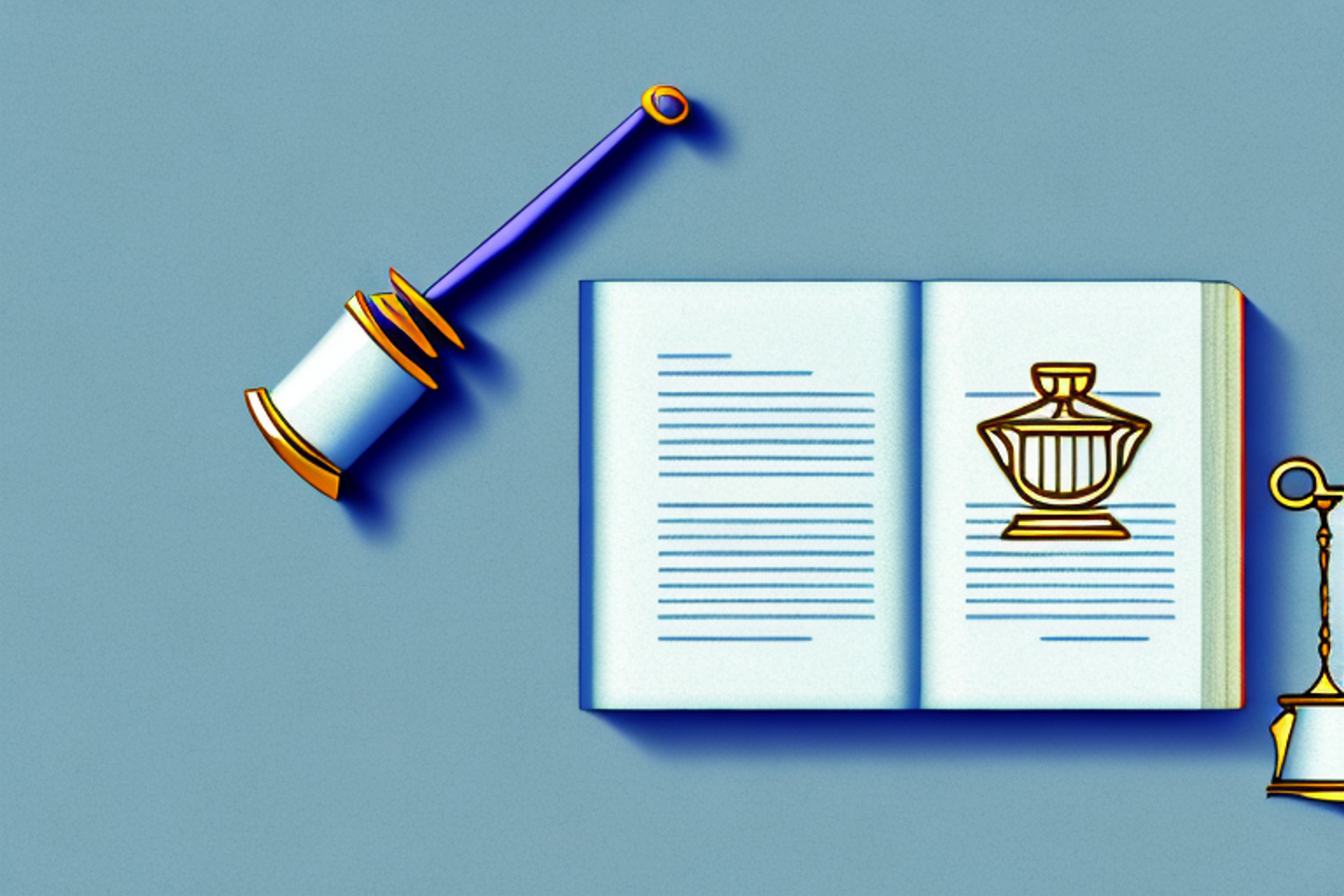
May 12, 2023
How to Write a Compelling Personal Statement for University of Pennsylvania Carey Law School
Learn how to craft a powerful personal statement that will impress the admissions committee at University of Pennsylvania Carey Law School.
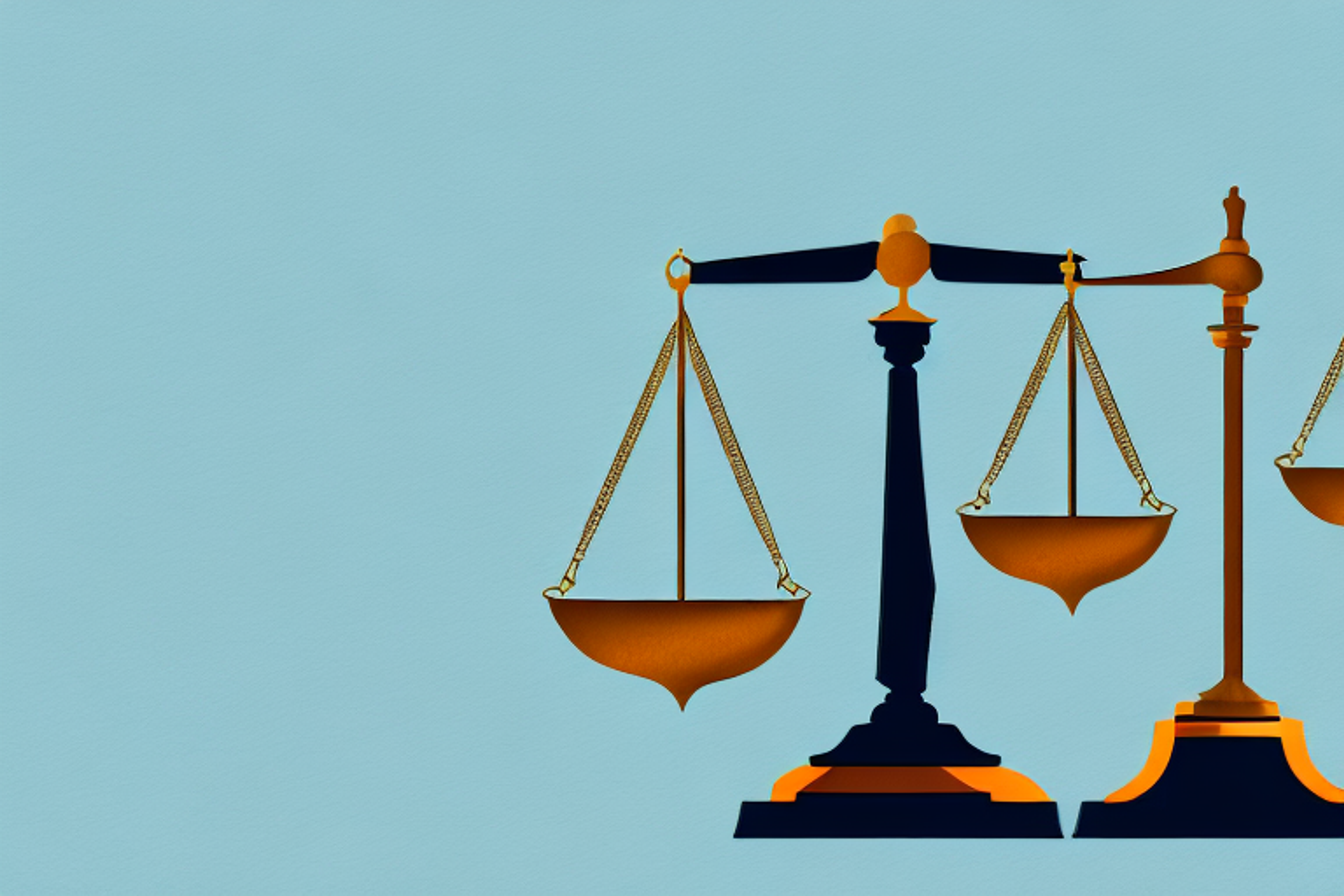
How to Write a Compelling Personal Statement for Duke University School of Law
Learn how to craft a standout personal statement for Duke University School of Law with our comprehensive guide.
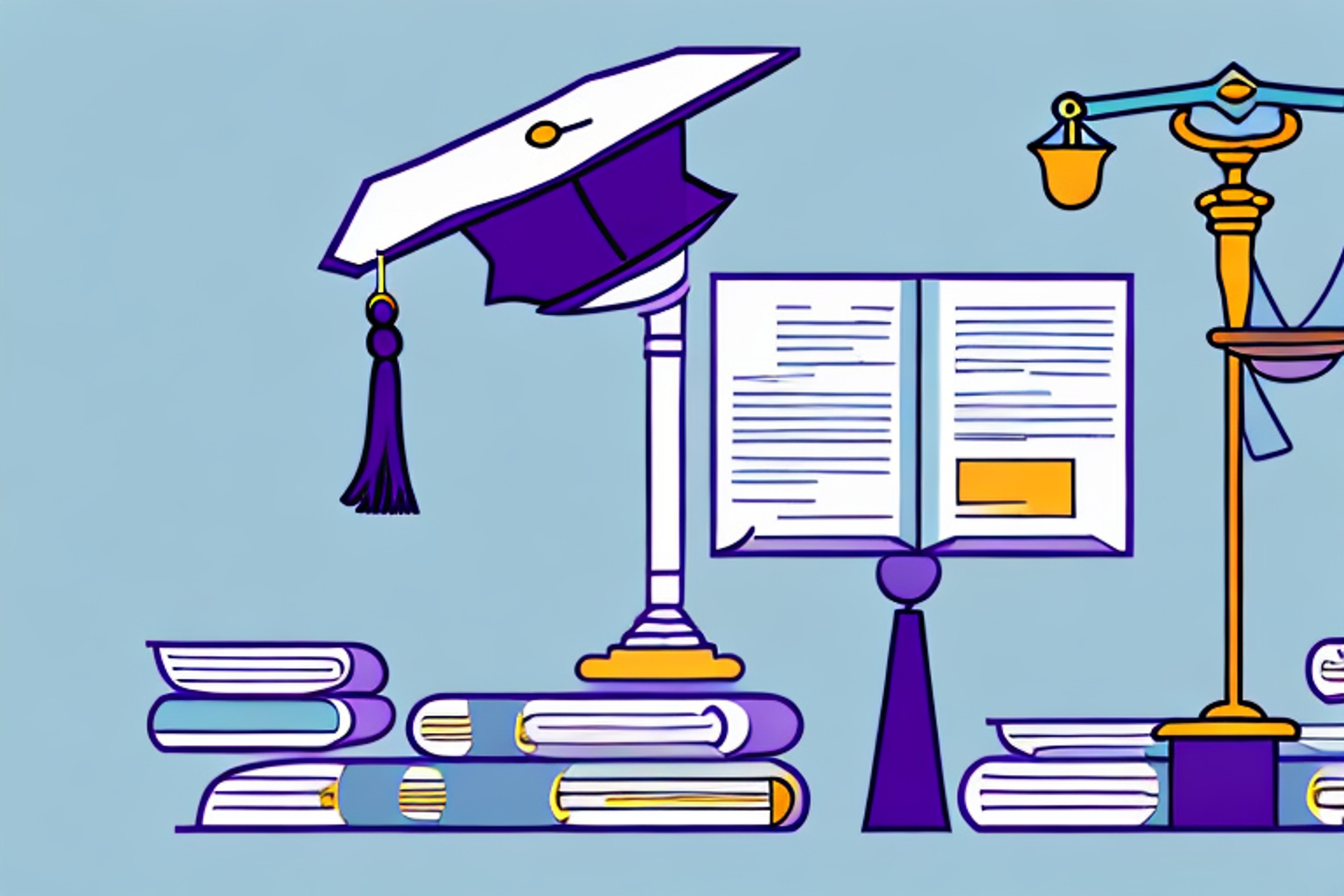
How to Write a Compelling Personal Statement for Northwestern University Pritzker School of Law
Learn how to write a compelling personal statement that will make your application stand out for Northwestern University Pritzker School of Law.

How to Write a Compelling Personal Statement for Georgetown University Law Center
Learn how to craft a personal statement that will impress the admissions committee at Georgetown University Law Center.
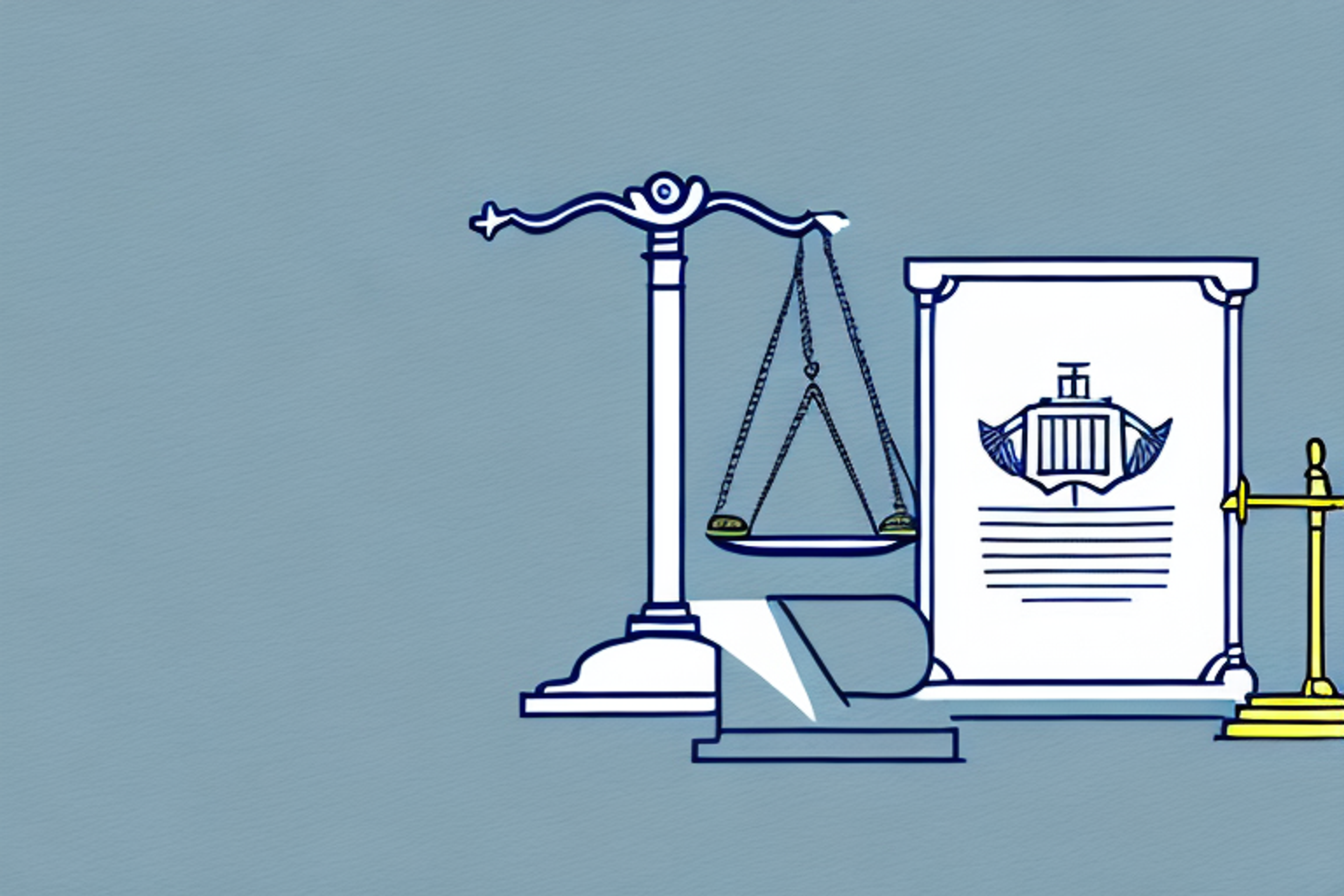
How to Write a Compelling Personal Statement for University of Southern California Gould School of Law
Learn how to craft a powerful personal statement that will make your application stand out to the University of Southern California Gould School of Law.

How to Write a Compelling Personal Statement for University of Minnesota Law School
Learn how to craft a powerful personal statement that will grab the attention of the University of Minnesota Law School admissions committee.

How to Write a Compelling Personal Statement for University of California, Irvine School of Law
Learn how to write a compelling personal statement that will impress the admissions committee at the University of California, Irvine School of Law.
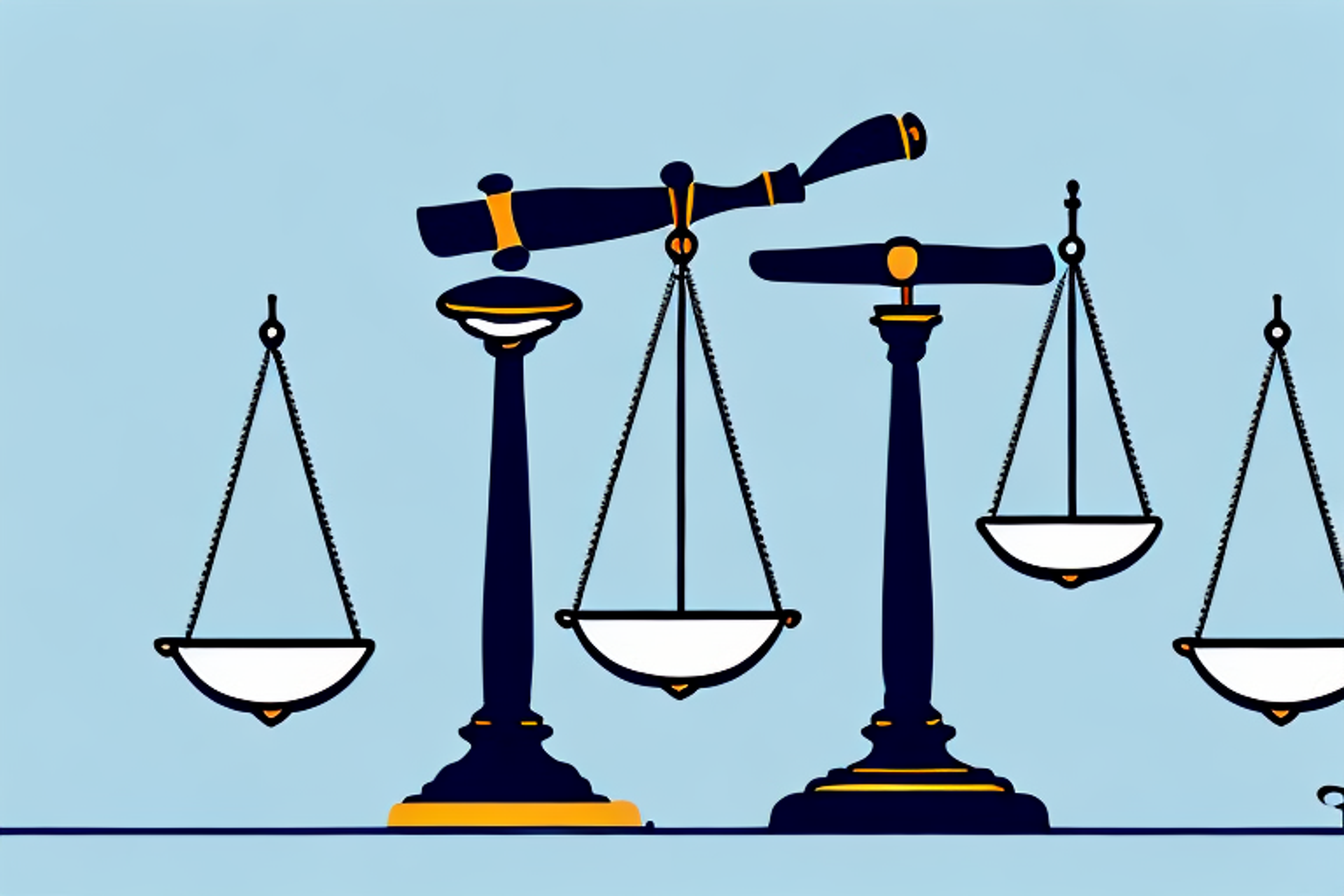
How to Write a Compelling Personal Statement for Emory University School of Law
Learn how to craft a powerful personal statement that will impress the admissions committee at Emory University School of Law.
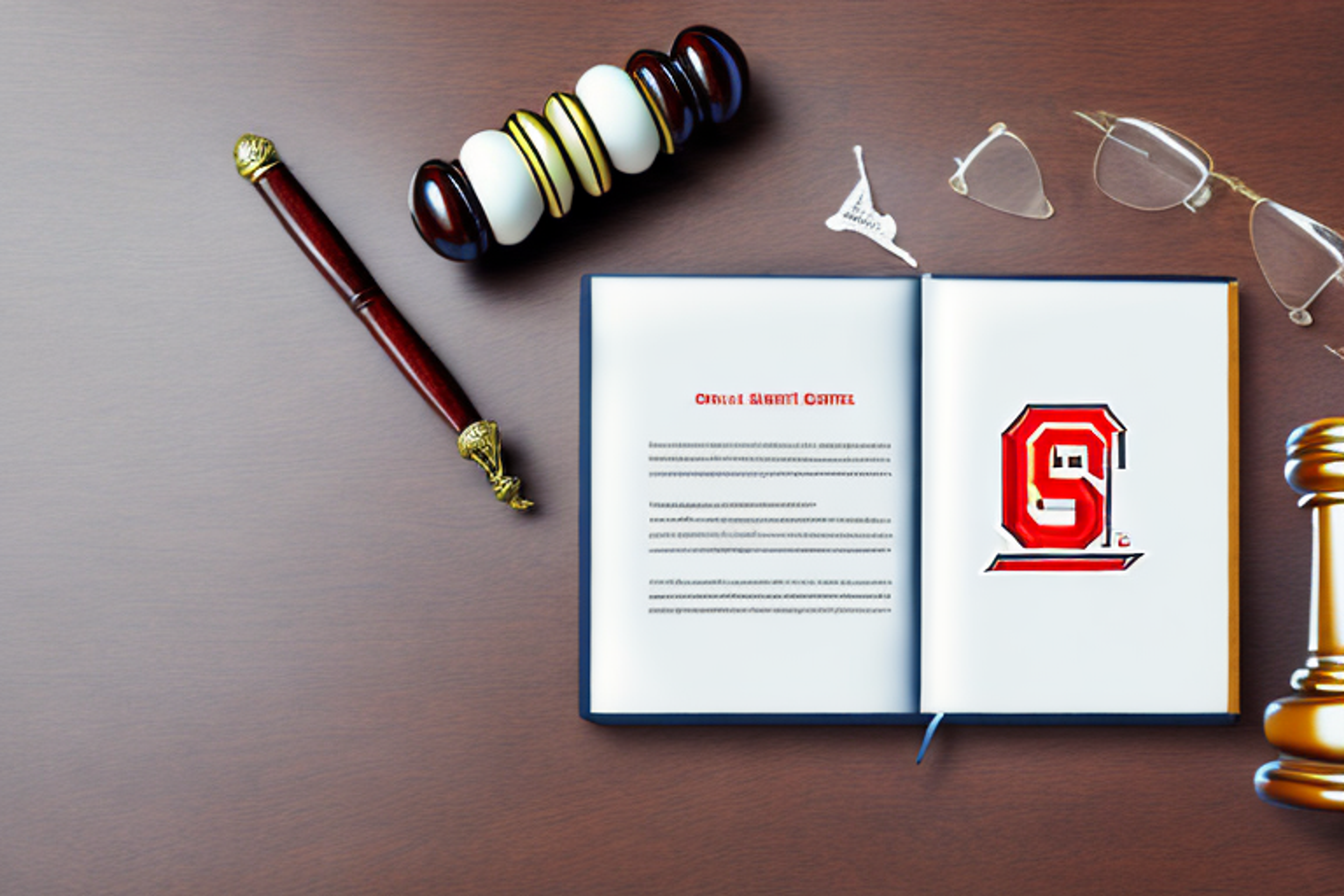
How to Write a Compelling Personal Statement for Ohio State University Moritz College of Law
Learn how to craft a powerful personal statement that will impress the admissions committee at Ohio State University Moritz College of Law.
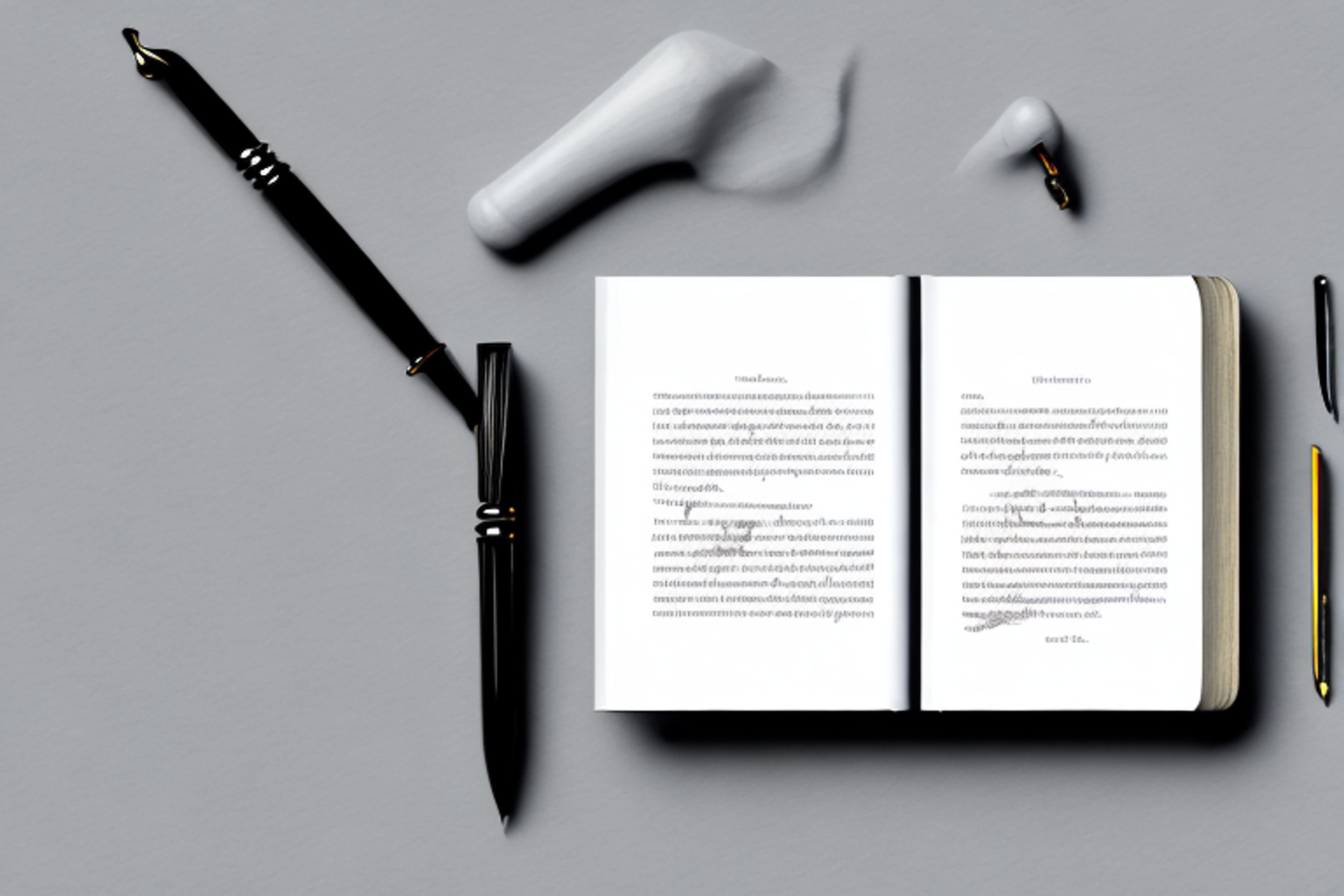
How to Write a Compelling Personal Statement for William & Mary Law School
Learn how to craft a powerful personal statement that will impress the admissions committee at William & Mary Law School.

How to Write a Compelling Personal Statement for Indiana University Maurer School of Law
Learn how to craft a winning personal statement for Indiana University Maurer School of Law with our expert tips and advice.
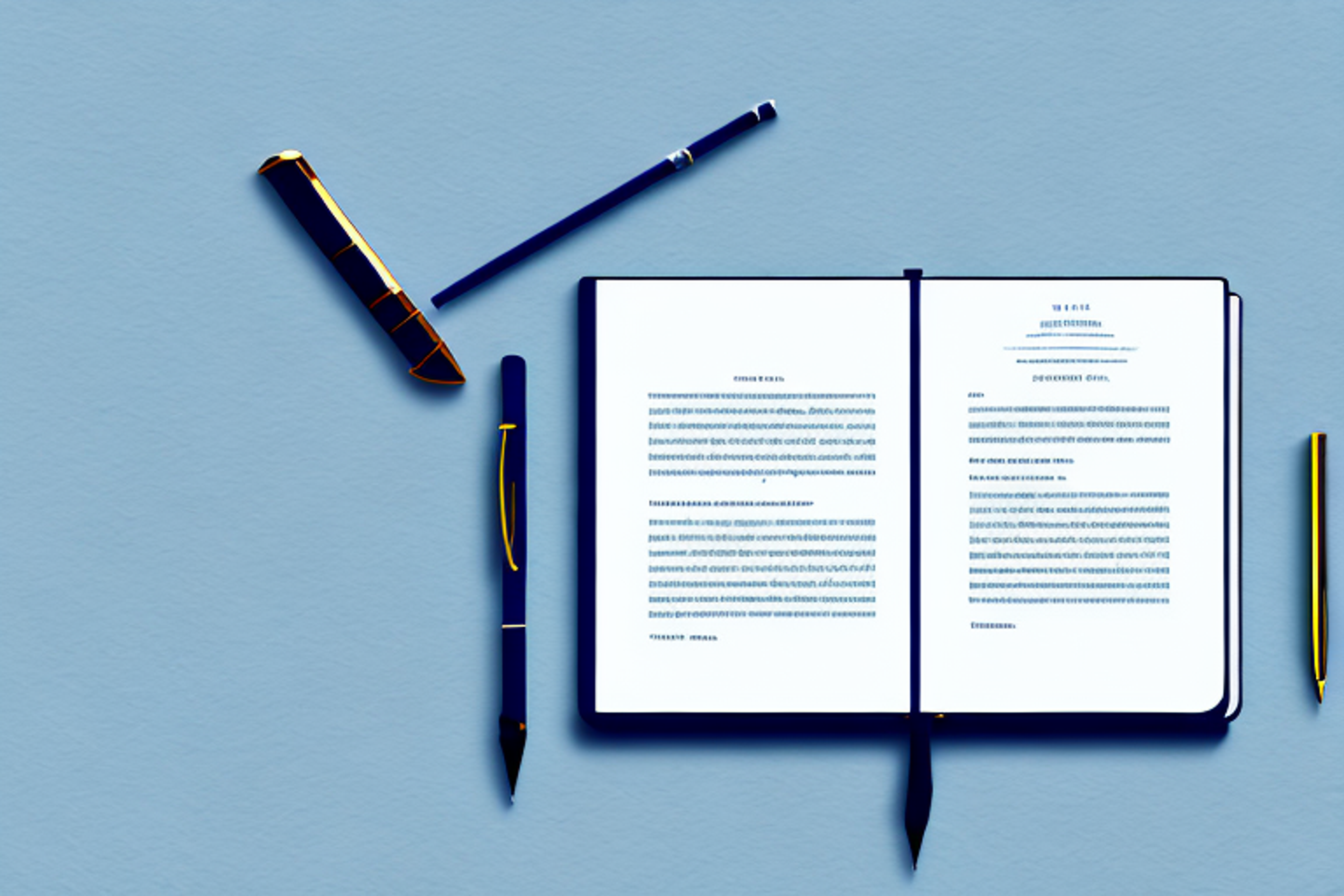
How to Write a Compelling Personal Statement for University of California--Davis School of Law
Learn how to craft a winning personal statement for University of California--Davis School of Law with our comprehensive guide.
Law School Personal Statement Examples

The personal statement is a critical part of a law school application. Although it may not be as important as your LSAT score and GPA, remember that law school admissions committees are trying to build a diverse and interesting community of students. Your personal statement is the primary way you can show law schools who you are beyond your numbers and resume, and is also an opportunity to show the quality of your writing. If you’re not sure where to start, read on for law school personal statement examples and what makes each one successful.
Best Law School Personal Statement Examples
Below, you’ll find examples of successful personal statements that have been published by law schools themselves, followed by some tips and takeaways on what makes these law school personal statements work well. We also encourage you to check out this guide to formatting your personal statement .
Law School Personal Statement Example 1
First, take a look at the last sample personal statement about recovering from an injury: In Their Own Words: Admissions Essays That Worked | University of Chicago Law School . This was published by UChicago as an exemplary essay that worked well for admissions. Keep reading to get our analysis of what makes this a great personal statement!
- Law school personal statements don’t always need to be about why the applicant wants to go to law school. You can see how this statement touches on an interest in law only very briefly and lightly; the focus of the statement is instead on revealing personal qualities of the applicant.
Law School Personal Statement Example 2
Next, take a look at the last sample law school personal statement about an applicant’s experience in Teach for America: BU Law Student Personal Statements | School of Law . This was published by Boston University. Now, here’s why we think this is a winning personal statement.
- Clear and direct writing. The statement uses plain language and contractions – don’t think you have to use an overly “professional” tone.
Law School Personal Statement Tips
- Have you experienced any major changes in your career, intellectual interests, or life motivations? What caused the change?
How long should your personal statement be for law school?
Each law school may have its own rules regarding page length and font size for a personal statement. So make sure to check the personal statement format requirements for each school you’re applying to (among other specific law school requirements ). However, for the vast majority of schools, a statement should be about 2 pages long, double-spaced, in a readable font size (12 pt or 11 pt).
Even if a law school doesn’t specify any page limits for the personal statement, remember that admissions committees will be reading thousands of applications and will appreciate brevity. So you don’t necessarily want to write 4 pages or more simply because you can. For those schools that allow you to write more than 2 pages, having a 3-page version of your statement can make sense, but only if the extra page makes it better.
Final Advice
The personal statement is one of your only chances to let law schools know who you are beyond your numbers and resume. So, make the most of it. If you follow the tips above, you’ll have a compelling statement that will make law schools eager to have you join their entering classes. Meanwhile, if you’re writing a transfer statement, check out our advice on law school transfer personal statements!

Kevin Lin earned a B.A. from UC Berkeley and a J.D. from Columbia Law School. After working as a lawyer for several years, both at the U.S. Attorney’s Office and at a large New York law firm, he succumbed to his love of the LSAT and teaching and has been a full-time LSAT instructor since 2015. Beginning first at a major test prep company and rising to become one of its most experienced and highly rated instructors, he began tutoring independently in 2019. Kevin has worked with LSAT students at all stages of their preparation, from complete beginners to LSAT veterans shooting for the 99th percentile. Connect and learn more about Kevin on YouTube , LinkedIn , and his website .
View all posts
More from Magoosh

Leave a Reply Cancel reply
Your email address will not be published. Required fields are marked *
- Support LUC
- Directories
- KRONOS Timecard
- Employee Self-Service
- Password Self-service
- Academic Affairs
- Advancement
- Admission: Adult B.A.
- Admission: Grad/Prof
- Admission: International
- Admission: Undergrad
- Alumni Email
- Alumni Relations
- Arrupe College
- Bursar's Office
- Campus Ministry
- Career Centers
- Center for Student Assistance and Advocacy
- Colleges and Schools
- Commencement
- Conference Services
- Continuing Education
- Course Evaluations IDEA
- Cuneo Mansion & Gardens
- Dining Services
- Diversity and Inclusion
- Emeriti Faculty Caucus
- Enterprise Learning Hub
- Executive and Professional Education
- Faculty Activity System
- Financial Aid
- Human Resources
- IBHE Institutional Complaint System
- Information Technology Services
- Institute of Environmental Sustainability
- Learning Portfolio
- Loyola Health App
- Loyola University Chicago Retiree Association (LUCRA)
- Madonna della Strada Chapel
- Media Relations
- Navigate Staff
- Office of First Year Experience
- Office of Institutional Effectiveness
- President's Office
- Rambler Buzz
- Registration and Records
- Residence Life
- Retreat & Ecology Campus
- Rome Center
- Security/Police
- Staff Council
- Student Achievement
- Student Consumer Information
- Student Development
- Study Abroad
- Summer Sessions
- University Policies
- Writing Center
Loyola University Chicago
Pre-law advising, career services, personal statement and resume.
Personal statements are a critical component of your law school application as they allow you to address the admissions committee directly as you would in an interview. While the LSAT and undergraduate GPA form the foundation of the admission evaluation process , law school essays provide you an opportunity to “show” who you are as a person, to demonstrate your commitment to the legal profession, to explain the reasons you are a good fit for the particular law school, and to generally set yourself apart from other applicants. Thus, a well-written personal statement might make an otherwise equivocal admissions committee take another look at an applicant’s file; and an outstanding personal statement might make the difference between a “waitlist” and an “admit” decision.
Personal Statement
Consider the following recommendations as you develop your personal statement:
- E mphasize those things that will distinguish you from other candidates (e.g., significant employment, travel abroad, research projects, presentations, and/or publication s ).
- Do not emphasize shortcomings in your record in the personal statement. If you want to explain a low GPA or LSAT score, do so in a separate addendum , where you should b e brief, factual, and honest.
- Write in a direct, concrete fashion about real experiences, events, people and how they impacted you.
- Speak to one particular topic or theme in each paragraph ; use separate paragraphs to signify the transition from one topic to the next. Be clear, organized and reader-friendly.
- Limit yourself to around two double-spaced pages.
- Have a Pre-Law advisor or another trusted advisor review your personal statement.
Because many law schools do not grant interviews for applicants, it is important to provide detailed information relevant to your academic and personal qualifications for the study and practice of law. You should note and describe briefly your academic record, honors and awards, work and volunteer experiences, foreign language competencies, and study abroad and research opportunities that you have undertaken. To l earn more about writing an effective resume , please visit www.luc.edu/career .
Consider the following advice as you develop your resume:
- Order each section in reverse chronological order by employment end date. If your most recent experience is not related to the legal profession, consider alternate section headers to bring your most relevant experience to the top of your resume. For instance , you may consider a “Related Experience” and “Additional Experience” section in order to list a more relevant, yet less recent, experience at the very top of your resume .
- Focus on transferable skills (e.g. synthesized, analyzed, researched, wrote, addressed, persuaded); avoid simply listing tasks. D escribe a particular role in terms that show its relatability to law school or the legal profession. For instance, you may describe a tutoring position in terms of your ability to develop rapport with your client to build an effective working relationship, assess the student’s level of understanding, and synthesize complex information to the most pertinent points of discussion. Th ese examples are stronger than simply listing the task, e.g. tutored an eighth grade student in English, in that you demonstrate several skills could transfer from that setting into law school.
- Include bullet point descriptions not only for paid experiences, but also for unpaid positions (including student clubs and organizations ) . If it’s worth listing on the resume, it’s worth offering context as to what you learned and what can be transferred from that role.
- Review each school's application material to see if there are any specifications to which your resume must conform (e.g., page limits).
- Review the Career Services Resume Guide in Handshake for a comprehensive overview of resume writing.
- Undergraduate
- Graduate/ Professional
- Adult Education

- Official Communications
- Science Sparks
- Current Student Resources
- Faculty and Staff Resources
- Online Learning Resources and Support
- Photography/Video
- Social Media Account Request Form
- UIC Social Media Guidelines and Best Practices
- UIC in the news
- Communicating On Campus
- Sending Announcements / DDDH
- UIC Social Media Directory
I am UIC: How to personalize your personal statement
February 23, 2018

What are some of your strengths? What are you passionate about and how have you demonstrated commitments to those causes?
These are some of the questions you are meant to think about when developing a personal statement for graduate and professional school applications. Some thoughts may immediately come to mind, but when it comes to translating those thoughts to the written word, it’s easy to get stuck.
Personal statement workshops, such as those hosted by LAS Pre-Health Advising, provide students with guidance as they struggle to find words to fill a blank Word document. Here are some tips that I gathered at the latest of such workshops.
- Focus on describing how you have demonstrated the strengths you want the application committee to notice — don’t simply listing those skills.
- Identify key experiences that serve as highlights for your college career. Then extract concrete examples from those experiences that add to the story-like quality of your statement.
- It’s OK to write about your background, but make sure you use events that occurred prior to college to paint a picture of who you are today and what you’re doing now.
- You need to be comfortable speaking about everything in your essay at a potential interview. So, if you’re considering describing a very personal event, make sure it is one that you would be willing to answer questions about.
- Recognize that the personal statement is one component of your application and it’s unlikely that it will be the determining factor in your acceptance. However, it is still the only opportunity for you to introduce yourself on your terms and likely the component over which you have the most control. So, instead of viewing it as a burden, take advantage of it.
The next LAS Pre-Health Advising personal statement workshop will be held March 12 from 2 to 3 p.m. in 850 UH.
Hoda Fakhari is a senior studying biochemistry and English with a concentration in media, rhetoric and cultural studies. She is interested in making connections between subject areas that appear uncomplimentary in order to arrive at more diverse and relevant ways of understanding people and society.

Hoda Fakhari [email protected]
blog , graduate school , I am UIC , personal statement
The University of Chicago The Law School
Writing competition: the personal statement.
Class of 2024, please join us for a discussion of the personal statement component of the Writing Competition. All students interested in joining an academic journal through the Writing Competition must submit a personal statement. A panel of 2L and 3L journal staffers will discuss strategies for approaching this component of the Writing Competition. You can sign up for the Writing Competition here . Lunch will be served following the event.
This convening is open to all invitees who are compliant with UChicago vaccination requirements and, because of ongoing health risks, particularly to the unvaccinated, participants are expected to adopt the risk mitigation measures (masking and social distancing, etc.) appropriate to their vaccination status as advised by public health officials or to their individual vulnerabilities as advised by a medical professional. Public convening may not be safe for all and carries a risk for contracting COVID-19, particularly for those unvaccinated. Participants will not know the vaccination status of others and should follow appropriate risk mitigation measures.

IMAGES
COMMENTS
Your personal statement should not have errors - this is a sample of your writing and it should be a strong reflection of your written communication skills. Edit extensively and make sure to remove tracked changes. Be concise and organize your thoughts. Remember basic writing skills and essay structure.
Research examples of well-written personal statements. To get some ideas about what a good personal statement could look like, I did a preliminary search to read a few successful ones. The University of Chicago had a few essays posted on their site from admitted students that gave me a good point of reference. Although there is tremendous ...
Law School Personal Statement Example #1. When I was a child, my neighbors, who had arrived in America from Nepal, often seemed stressed. They argued a lot, struggled for money, and seemed to work all hours of the day. One day, I woke early in the morning to a commotion outside my apartment.
For example, if a school expects no more than two pages, 11-point font, 1-inch margins and double spacing, make sure to format your personal statement precisely according to those specifications ...
Law school personal statement example 5. Below is Victor's University of Chicago Law School personal statement: The house is quiet—its residents have been asleep for some time now. In a modest room on the second floor, only faint specks of moonlight peek through the window blinds.
Law School Personal Statement Example #2. This law school personal statement excerpt led to acceptance at Boston University Law. "She sat opposite me at my desk to fill out a few forms. Fumbling her hands and laughing uncomfortably, it was obvious that she was nervous.
Finally, to give you an edge in the application process, here are some tips from successful UChicago law school applicants on writing a winning personal statement: Be authentic and true to yourself. Showcase your unique qualities and experiences. Avoid cliches and common topics.
Law School Personal Statement Example 1. First, take a look at the last sample personal statement about recovering from an injury: In Their Own Words: Admissions Essays That Worked | University of Chicago Law School. This was published by UChicago as an exemplary essay that worked well for admissions.
Director of the Patriot Pre-Law Program. Schar School of Policy and Government. Since 2005 I have advised a multitude of pre-law students at George Mason University and the University of Delaware. Aside from general application advice, my students hope to learn how to write a personal statement that will help them get into law school.
Learn like until writer a ordinance school personal statement that dazzles the admissions committee ... Wide Opinion: Describe wherewith thine vorgeschichte with experiences desires enhance one variety of the University is Chicago Lawyer Educate our (e.g., basic on my culture, races, ethnicity, faith, sexual orientation, sex confirm, ideology ...
Personal Statement and Resume. Personal statements are a critical component of your law school application as they allow you to address the admissions committee directly as you would in an interview. While the LSAT and undergraduate GPA form the foundation of the admission evaluation process, law school essays provide you an opportunity to ...
Created with Fabric.js 4.2.0 The University of Chicago The Law School. Principal navigation. Recording . JD Application
However, the law school personal statement is a contested genre due to the lack of universal guidelines. While there is a wealth of advice on law school websites as well as from third party sources, some of it . can be contradictory. Below are some general tips for writing your personal statement. 1. Think About Your Audience
Identify key experiences that serve as highlights for your college career. Then extract concrete examples from those experiences that add to the story-like quality of your statement. It's OK to write about your background, but make sure you use events that occurred prior to college to paint a picture of who you are today and what you're ...
Created with Fabric.js 4.2.0 The University of Chicago The Law School. Main navigation. Admissions . JD Program ; JD Cost & Aid
Created at Fabric.js 4.2.0 The University of Chicago The Law School. Main steering. Admissions . JD Program ; JD Cost & Aid
Calendar. Friday, February 18, 2022 @ 12:15pm — 1:15pm. Room II. 1111 East 60th Street, Chicago, Illinois 60637. Open to the Law School community. Class of 2024, please join us for a discussion of the personal statement component of the Writing Competition. All students interested in joining an academic journal through the Writing Competition ...
The Admissions Committee is especially looking to two things in the personal statement: Jump to main content. Main navigate. Admissions ... The Seminary of Boodle The Law School. Wichtig browse. Admissions ... Chicago-based Policy Engagement
What is the Admissions Committee looking for in the personal statement? The Admissions Committee is primarily looking by second things are the personal account: FAQs: Personal Statement | University of Chicago Law School / Tips For Law School Personal Statements: Examples, Resources And More